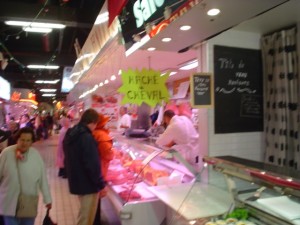 It is illegal for horse meat to enter the food chain in the United States.
It is illegal for horse meat to enter the food chain in the United States.
The presence of horse meat in the two samples was detected during a study undertaken by researchers in the Food Science Program at California’s Chapman University.
The discovery comes after the 2013 horse-meat scandal in Europe, which saw a range of ready-made meals pulled from supermarket freezers across the continent after beef was found to have been contaminated with horse meat.
The resulting international investigation revealed the complexities of the food chain and its vulnerability to rogue traders.
Researchers at Chapman University have just published two separate studies exploring meat mislabeling in consumer products. One focused on identification of the species found in ground meat products and the other investigated game meat species labeling.
Both studies examined products sold in the US commercial market; and both identified species mislabeling.
In the study on identification of species found in ground meat products, 48 samples were purchased from five online specialty meat distributors and four retail outlets (three supermarkets and one butcher) in Orange County, California. The samples represented 15 different meat types.
They were tested for the presence of beef, chicken, lamb, turkey, pork and horse using a combination of DNA barcoding and real-time polymerase chain reaction (PCR).
Thirty-eight of them were found to have been labeled correctly.
However, 10 were found to have been mislabeled. Of these, nine were found to contain additional meat species and one sample was mislabeled in its entirety. Horse meat was detected in two of the samples.
One of the samples containing horse was labeled as ground bison and the other as ground lamb meat.
Both had been purchased from two different online specialty meat distributors.
